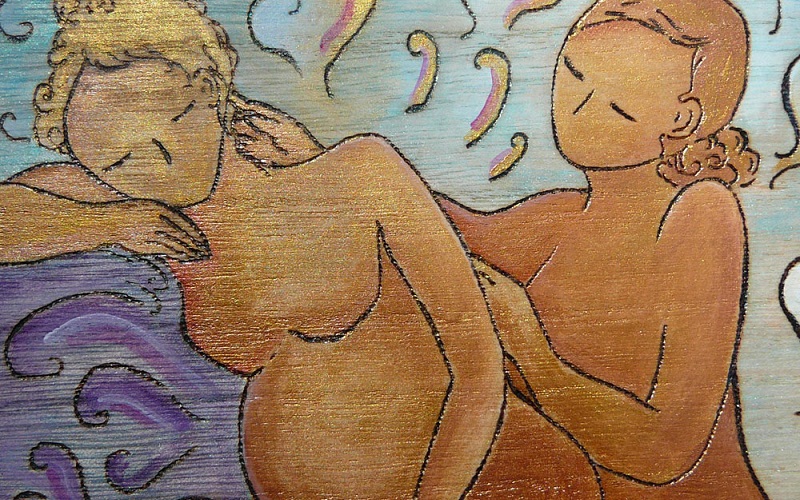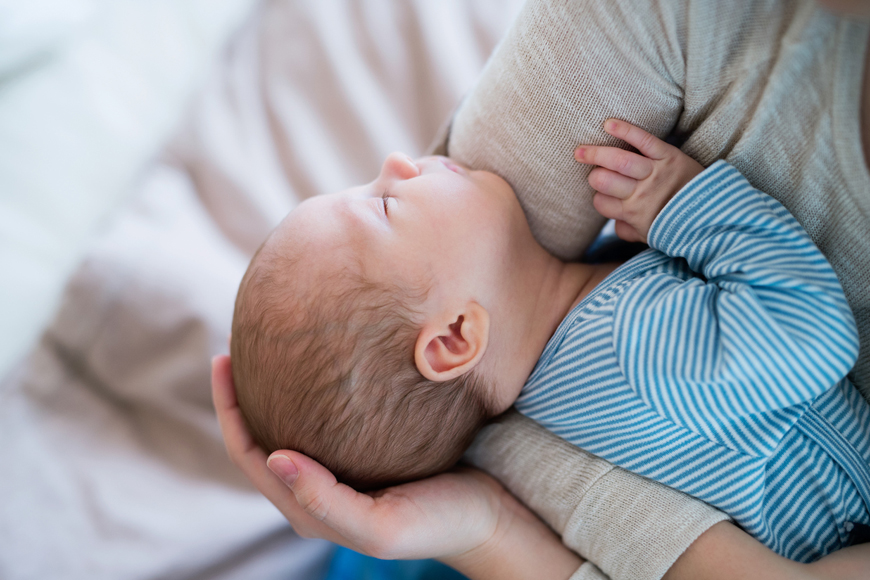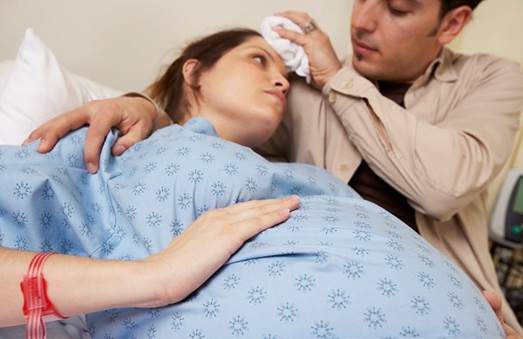Diving into Doulas: Getting to Know Cairo's Most Prominent Birth Support Professional
It's been recorded that women experience a more positive pregnancy when aided by a doula.

“Do you mean a Dayaa? The one who helps mothers give birth without any medical experience, just through practice?” is only one of the many responses received when we asked around for the definition of a doula. The majority of Egyptian women and men aren’t quite familiar with the term, seeing as the practise isn’t very widespread in the country as it might be elsewhere. However recently, Doulas, which are professionals who offer emotional, psychological and physical support to pregnant women and mothers alike, have started becoming more abundant in the North African country. Sawsan Mostafa Nashaat, the first certified Egyptian doula in Cairo, has been at it for the past four years. Nashaat founded Positive Birth Cairo, which provides pregnant women with the necessary education, preparation and support they could need in Egypt.
“Doulas are labour support professionals. We get specific training for it. So for example, when the mum-to-be is going into labour, as she starts feeling the contractions getting faster and stronger, she’ll usually need some form of emotional and psychological support. But it’s not just during birth, it’s before and after as well that doulas are usually there,” explains Nashaat. “It’s not limited to natural births either; even though there are some doulas who will only work with natural birth as they feel they're not needed otherwise. The doula isn't a medical care provider, rather, she works with the primary caregiver to make the mother as comfortable as possible.”
Doulas are there for the mother throughout the whole experience and bond on a personal level, whereas the doctor is limited to the medical aspect of child birth. Nashaat likens it to the positive energy needed by athletes in competitions, as she compares child birth to “running a marathon and doulas being the cheerleaders.”
Nashaat, who became a doula after giving birth, decided to be the change she wanted to see in the country. Having had a natural birth herself, the doula found that she was looking for a form of support that was essentially nonexistent within her city. Nashaat is also a certified childbirth educator as well as a breastfeeding counsellor.
“I decided to become a doula after giving birth to my son, which is how most doulas start. My birth was a natural one. That's not to say though that I only cater to those who want to go natural,” explains Nashaat. “My philosophy is that I don’t tell women how to give birth. I support them regardless of how they want give do it, even if it’s C-section.”

While the certified doula doesn’t enforce the option of a natural birth on any of her patients, she does however clarify the harms that come with C-sections. The procedure, at the base, is meant to be the last resort and used for when the mother or child is at risk. Egypt, however, has seen an alarming increase in C-sections over the past few years, according to the National Centre for Biotechnology information.
“According to research done over the years, all diseases start in your gut and that’s why a lot of people have recently started eating yogurt and pro-biotics. When you’re having a C-section, you’re altering the baby's gut bacteria. When it's a vaginal birth, the baby gets certain bacteria that he needs in a process called seeding. That bacteria later on grows during the feeding process. With a C-section, the baby doesn't get the needed bacteria and as a result his immunity is compromised.” explains Nashaat. “With natural birth also, there’s a hormonal cocktail which works in a specific sequence during the birthing process. During the C-section, that sequence is disrupted and results in a hormonal imbalance.”
While there has been a rise in the number of women who opt for a natural birth and as such are more likely to request a doula, many remain skeptical about the process.
“A lot of women have C-sections because they’re afraid of a natural birth. It’s uncommon nowadays, and so it’s surrounded by a lot of fear. In addition to that, the media's portrayal of child birth is always a women screaming in pain or ending up in the O.R. So with all that, why would anyone want to try it?” says Nashaat, “ At the same time though, due to all that, we find a number of women going back to it, as it’s become sort of exotic. How do you think women used to do it back in the day? It’s the same process, same female body, the only difference between now and then is the social and mental set ups.”
Usually, a doula will meet the mother-to-be a few months before the actual birth and will be there throughout the entire process to answer her questions, keep her comfortable, support her, and educate her in terms of child birth. However, there are doulas that are specialised or present in only one aspect of the pregnancy process. All doulas though have been trained to offer unmedicated pain relief techniques such as massages, relaxation techniques, laboring positions and so on.

“Family members can be added anxiety or added pressure during child birth. Of course, they’re providing everything they can, but doulas know the birthing method. They’ve got the medical knowledge concerning the situation. Obviously a husband knows his wife, but a doula knows birth. As for having the mother there, she may have the experience, but it's on her experience which was a long time ago. It's also an emotional process, because it's her own flesh and blood. A doula, however, can be an objective presence during the birth," exclaims Nashaat.
Doulas, which tend to be confused with Dayaas in Egypt, are actually quite different. Dayaas were the women who would help a woman give birth at home. Moreover, dayaas don't necessarily have any certification, but rather picked it up through practice. Doulas do not actually help give birth, but they prepare the mother for what's to come by providing childbirth preparation classes as well as labour preparation courses and discomfort relief among other things. While the doula may not lessen the actually pain, she is equipped to give the mum-to-be all the necessary tools to alleviate a large portion of the physical discomfort as well as psychological.
“I’ve been a doula for a few years now in Egypt. I was the first certified Egyptian Doula in the whole city four years ago (Cairo), but there were others doing it before that of course,” says Nashaat. “ I've seen a rise in the need for doulas over the past few years. I personally only do two births per month but I get more requests. It’s mainly through word of mouth though. Many women recently want to go back to the natural, unmedicated form of childbirth because they’re fed up with the over-medicalisation of the process.”

The doulas role extends past the physical aspects, and into the emotional and social side of things in situations which may otherwise be unbearable for the mother to handle on her own. A lot of women who decide to go against the norm, which has now become epidurals and C-sections, find opposition within their families, and may be regarded skeptically for their decision.
“A lot of women in Egypt who want to have natural birth find resistance within their families, because at this point, it seems like they’re swimming against the tide. And they get into fights with their families as to why they would want to do it naturally when they can be medicated. That’s when they’ll resort to doulas at times, because they find the support that they need. The doula then becomes indispensable,” explains Nashaat of the different roles a doula takes on.
Main image taken from www.marhaba.qa
- Previous Article Illiteracy in Egypt Dropped to 25.8% as of 2017
- Next Article La Veranda: A Restaurant for All Seasons
























